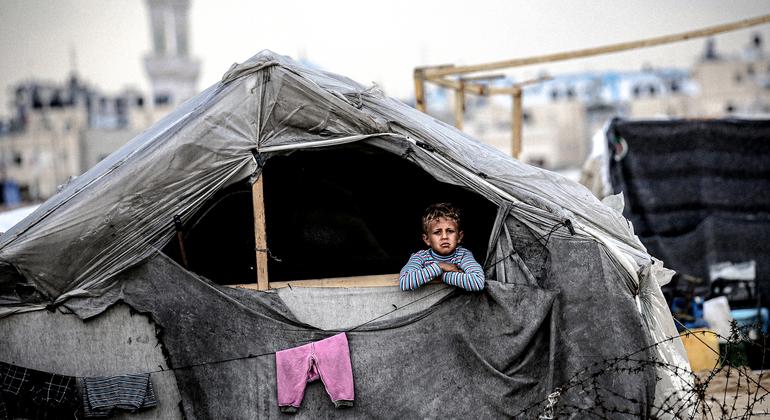The humanitarian situation in Gaza has reached alarming levels, according to the Deputy Director of the World Food Programme (WFP), Carl Skau. During a press conference at the UN headquarters in New York, Skau stated that the crisis is “worse than anything he has ever seen,” highlighting the drastic rise in hunger and malnutrition in the region. UNICEF statistics indicate that 90,000 children urgently need treatment for malnutrition.
Skau’s account includes heartbreaking stories that illustrate the suffering of families in Gaza. Some mothers have had to ask their children not to play, looking to conserve energy in a context where food is becoming increasingly scarce. He also mentioned that in the past week, many families have been displaced two to three times, while 85% of the territory still faces military operations.
To address this severe situation, the WFP requires at least 100 trucks of food daily, emphasizing that at least half of the supplies must go to northern Gaza to help stabilize prices. However, humanitarian workers face significant hindrances, including the need for authorizations at access checkpoints and a marked shortage of fuel and spare parts. Skau noted that many of their armored vehicles have been damaged, further complicating their efforts.
Despite the difficulties, Skau mentioned that recent meetings with Israeli authorities have shown an interest in facilitating the delivery of humanitarian aid through the UN, although he emphasized the urgent need for a ceasefire to ensure the delivery of that aid.
From Geneva, Ravina Shamdasani, spokesperson for the Office of the High Commissioner for Human Rights, condemned the recent attacks that have left several children dead while waiting for food assistance, stressing that it is unacceptable for the population to have to choose between feeding themselves or being victims of violence.
Violence during the distribution of assistance has been critical, with a documented increase in killings reaching 798 since late May, the majority due to gunshot wounds. In light of this situation, the UN has urged the international community to take decisive action, while the spokesperson for the World Health Organization, Christian Lindmeier, highlighted that “words are slowly running out to describe the scenario.”
Finally, the Director of Communications at UNRWA warned about Israel’s plan to displace Palestinians to the Rafah area, which could lead to the establishment of large concentration camps. Amid this crisis, the Agency for Palestinian Refugees has called for an immediate ceasefire and the opening of routes for humanitarian aid.
Referrer: MiMub in Spanish










